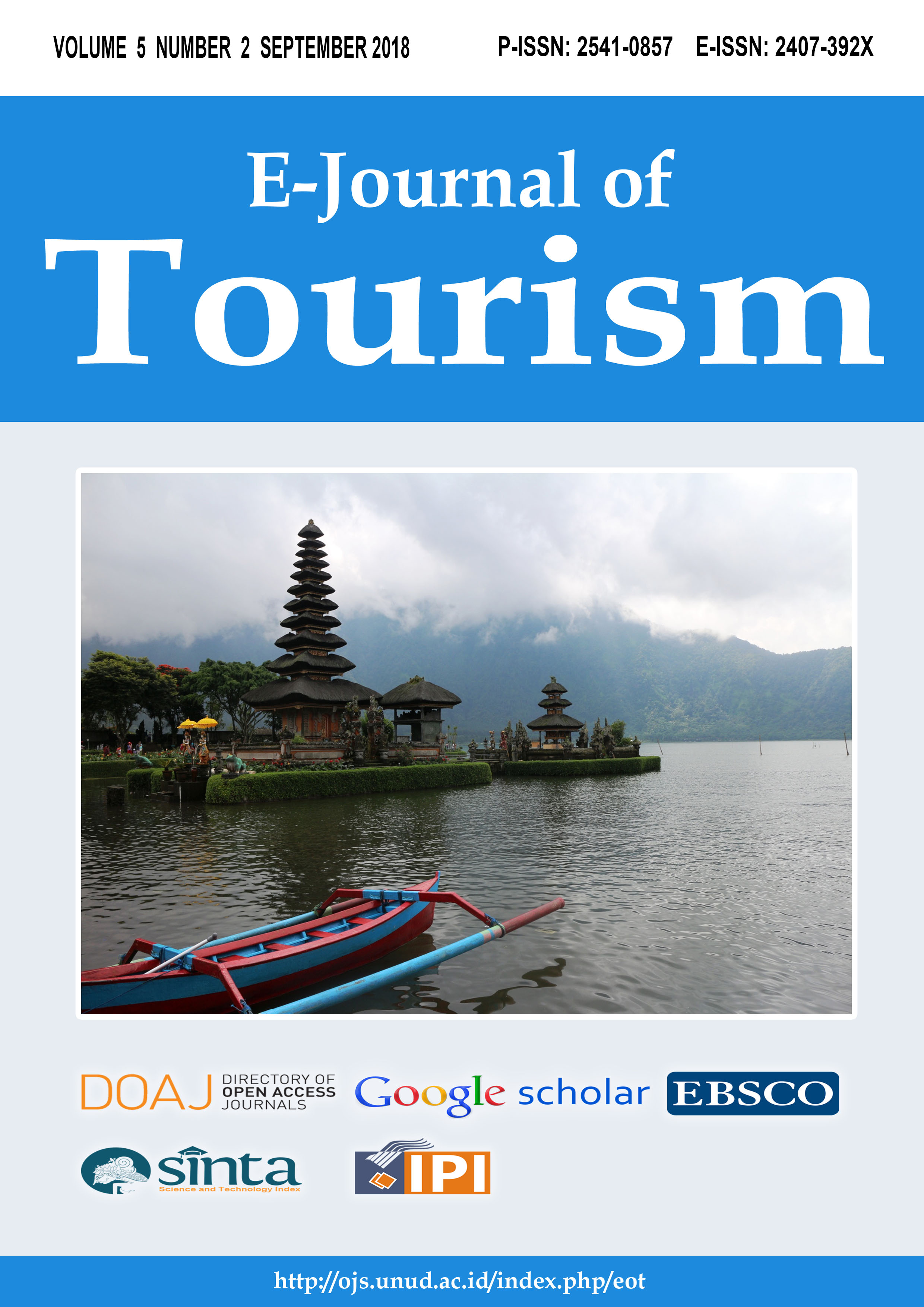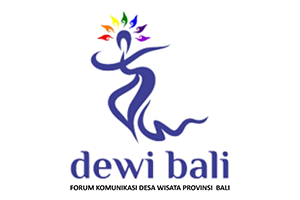English Communication Strategies in Tourism
Handling Guests’ Complaints in the Written Reviews of Tourist Accommodations
Abstract
The advance development in tourism industry is established through interrelated systems. One of which is the online booking platform. Not only for booking, but the online website also becomes the platform for giving reviews that portrays guests’ compliments or even complaints. Those compliments are powerful to give the guests positive image about the accommodation; however, the complaints will do in the contrary way. It may lead the accommodation into negative image. Accordingly, it is necessary for the accommodation providers to handle the complaints by giving the responses or reply of the guests’ reviews. That action will become the effort to turn the guests’ disappointment into satisfaction.
In order to achieve it, several English communication strategies in handling complaints were executed. This research takes the responses of 8 accommodation providers towards the guests’ review as the subject of the research. It is conducted by using content analysis method. The results yields 4 strategies that exists in the responses, namely: attentiveness that correlates with the hospitality in communication appears 100% of the total responses; explanation that presents the clarification and elaboration appears in 79% of the total responses; effort, that is the presentation of the promising action in the future, exists in 46% of the total responses and the least is apology, that is the action of saying sorry, exists in 25% of the total responses.
Downloads
References
Byakutaga, B. N. K. et al. (2016) ‘Written and Non-Written Communication Methods as Correlates of Employee Performance: A Study of Academic Staff of Primary Teachers’ Colleges in Central Uganda.’, Journal of Education and Practice. ERIC, 7(10), pp. 1–11.
Cohen, E. (1997) ‘Conducting an Online Public Affairs Campaign’, Public Relations Tactics, 4, p. 13.
Cook, M. C., Bell, C. R. and Ridge, K. (2013) Guidelines for the Development of a Communication Strategy. Available at: https://web.wpi.edu/Pubs/E-project/Available/E-project-042507-084241/unrestricted/GuidelinesForTheDevelopmentOfACommunicationStrategy.pdf (Accessed: 10 May 2018).
Davidow, M. (2003) ‘Have you heard the word? The effect of word of mouth on perceived justice, satisfaction and repurchase intentions following complaint handling’, Journal of Consumer Satisfaction, Dissatisfaction and Complaining Behavior. Consumer Satisfaction, Dissatisfaction and Complaining Behavior, 16, p. 67.
Ekiz, E. H., Ragavan, N. A. and Hussain, K. (2011) ‘How to Manage Guest Complaints: Global Implications from Hong Kong Hoteliers’, Global Journal of management and Business Research, 11(1).
Garnett, J. L., Marlowe, J. and Pandey, S. K. (2008) ‘Penetrating the performance predicament: Communication as a mediator or moderator of organizational culture’s impact on public organizational performance’, Public administration review. Wiley Online Library, 68(2), pp. 266–281.
Hansen, K. A. and Nora, P. (2004) ‘Behind the message: Information strategies for communicators’. Allyn & Bacon Press.
Hansma, L. and Elving, W. J. L. (2008) ‘Leading organizational change; The role of top management and supervisors in communicating organizational change’, Corporate and Marketing Communications as a Strategic Resource, pp. 116–127.
Johnson, M. A. (1997) ‘Public relations and technology: Practitioner perspectives’, Journal of Public Relations Research. Taylor & Francis, 9(3), pp. 213–236.
Karatepe, O. M. and Ekiz, E. H. (2004) ‘The effects of organizational responses to complaints on satisfaction and loyalty: a study of hotel guests in Northern Cyprus’, Managing Service Quality: An International Journal. Emerald Group Publishing Limited, 14(6), pp. 476–486.
Leslie, D. and Russell, H. (2006) ‘The importance of foreign language skills in the tourism sector: A comparative study of student perceptions in the UK and continental Europe’, Tourism Management. Elsevier, 27(6), pp. 1397–1407.
Naomi, K. (2014) Maintaining Customer Loyalty. Consumer Connection Brand Loyalty., Marketing Insights. Available at: https://www.ama.org/publications/MarketingInsights/Pages/Maintaining-Customer-Loyalty.aspx (Accessed: 12 April 2018).
Prasad, B. (2008) ‘Content Analysis A m=Method in Social Science Research’, Research Methods for Social Work Journal, pp. 173–193. Available at: https://repository.upenn.edu/cgi/viewcontent.cgi?referer=&httpsredir=1&article=1232&context=asc_papers&sei-redir=1&referer=http://scholar.google.com.my/scholar_url?hl=en&q=http://repository.upenn.edu/cgi/viewcontent.cgi?article=1232&context=asc_papers&sa=X&scisig=AAGBfm23DWDQYw .
Stempel, G. H. and Westley, B. H. (1989) Research methods in mass communication. Prentice hall.
Thurlow, C. and Jaworski, A. (2010) Tourism discourse: language and global mobility. Palgrave Macmillan.

This work is licensed under a Creative Commons Attribution 4.0 International License.
The copyright of the received article shall be assigned to the journal as the publisher of the journal. The intended copyright includes the right to publish the article in various forms (including reprints). The journal maintains the publishing rights to the published articles.




















